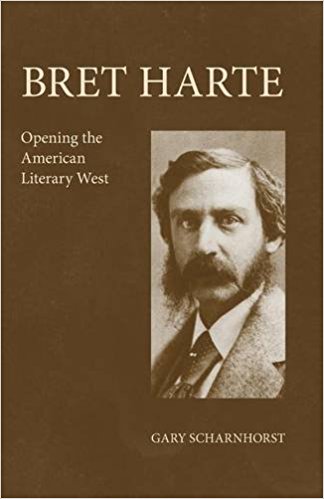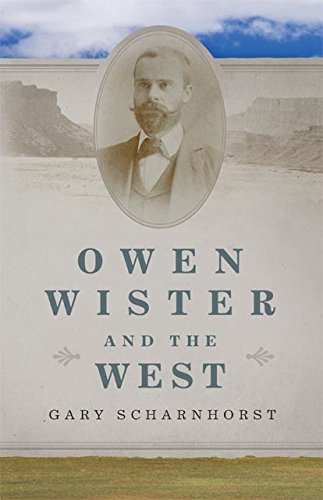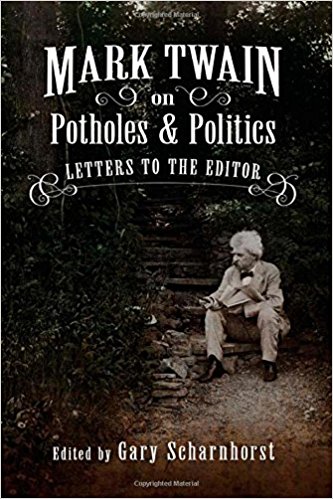Gary Scharnhorst
Gary Scharnhorst, Distinguished Professor Emeritus of English at the University of New Mexico, is the author or editor of more than forty books, including Mark Twain: The Complete Interviews and Mark Twain in His Own Time, a collection of reminiscences by his friends and acquaintances; and biographies of Horatio Alger Jr., Charlotte Perkins Gilman, Bret Harte, Kate Field, and Julian Hawthorne. He is also the editor of the journal American Literary Realism and the editor in alternating years of the research annual American Literary Scholarship. He is currently at work on a multivolume biography of Twain.
Bret Harte: Opening the American Literary West
 | "Bret Harte was the best-known and highest-paid writer in America in the early 1870s, yet his vexed attempts to earn a living by his pen led to the failure of his marriage and, in 1878, his departure for Europe. Gary Scharnhorst’s biography of Harte traces the growing commercial appeal of western fiction and drama on both sides of the Atlantic during the Gilded Age, a development in which Harte played a crucial role. Harte’s pioneering use of California local color in such stories as "The Outcasts of Poker Flat" challenged genteel assumptions about western writing and helped open eastern papers to contributions by Mark Twain and others. The popularity of Bret Harte’s writings was driven largely by a literary market that his western stories helped create. The first Harte biography in nearly seventy years to be written entirely from primary sources, this book documents Harte’s personal relationships and, in addition, his negotiations with various publishers, agents, and theatrical producers as he exploited popular interest in the American West." Buy this bookAmazon.com | University Bookstore |
Owen Wister and the West
 | "Westerns are rarely only about the West. From the works of James Fenimore Cooper to Gary Cooper, stories set in the American West have served as vehicles for topical commentary. More than any other pioneer of the genre, Owen Wister turned the Western into a form of social and political critique, touching on such issues as race, the environment, women’s rights, and immigration. In Owen Wister and the West, a biographical-literary account of Wister’s life and writings, Gary Scharnhorst shows how the West shaped Wister’s career and ideas, even as he lived and worked in the East. Buy this bookAmazon.com | University Bookstore |
Mark Twain on Potholes and Politics: Letters to the Editor
 | "Whether he was taking us along for a journey down the Mississippi with a couple of runaways or delivering speeches on the importance of careful lying, Mark Twain had an innate ability to captivate readers and listeners alike with his trademark humor and sarcasm. Twain never lacked for material, either, as his strong opinions regarding most issues gave him countless opportunities to articulate his thoughts in the voice that only he could provide. A frequent outlet for Twain’s wit was in letters to the editors of various newspapers and periodicals. Sharing his thoughts and opinions on topical issues ranging from national affairs to local social events, with swipes along the way at woman suffrage, potholes, literary piracy and other scams, slow mail delivery, police corruption, capital punishment, and the removal of Huck Finn from libraries, Twain never hesitated to speak his mind. And now thanks to Gary Scharnhorst, more than a hundred of these letters are available in one place for us to enjoy. From his opinions on the execution of an intellectually brilliant murderer, to his scathing review of a bureau he perceived as “a pack of idiots” running on a currency of doughnuts, Twain’s pure, unbridled voice is evident throughout his letters. Mark Twain on Potholes and Politics gives readers a chance to delve further than ever before into the musings of the most recognizable voice in American literature. Buy this bookAmazon.com | University Bookstore |






